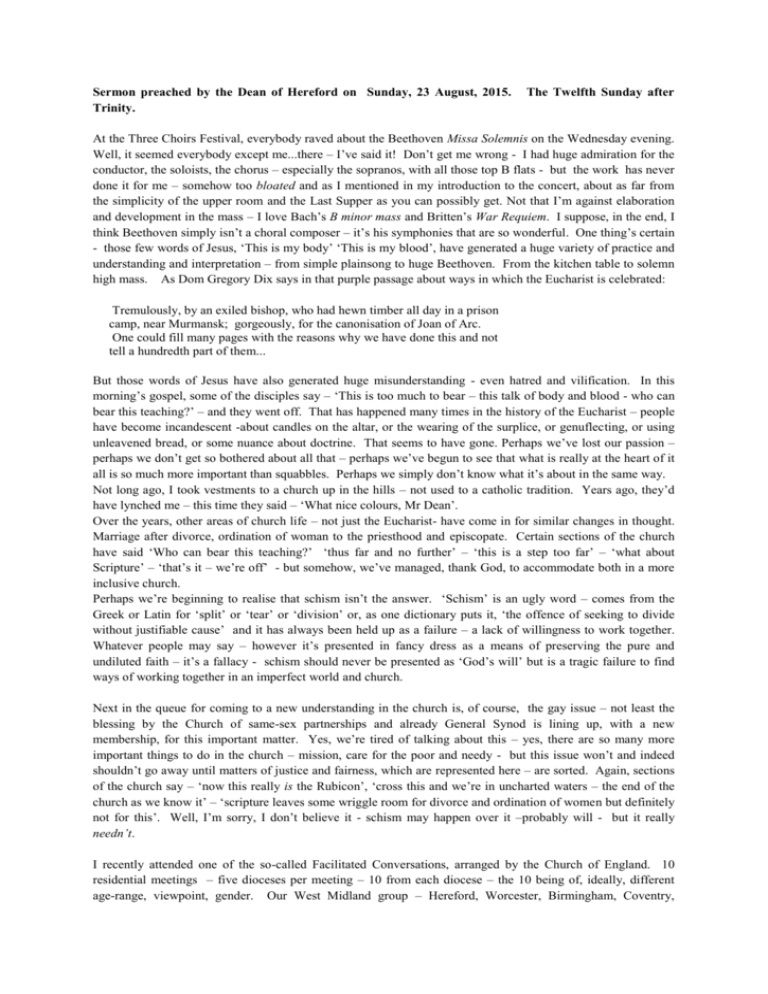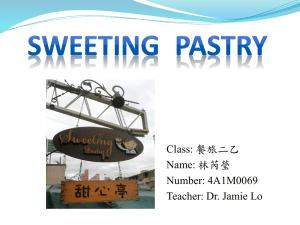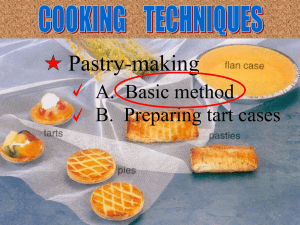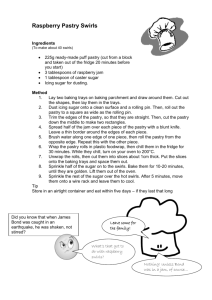Click here to get the file
advertisement

Sermon preached by the Dean of Hereford on Sunday, 23 August, 2015. Trinity. The Twelfth Sunday after At the Three Choirs Festival, everybody raved about the Beethoven Missa Solemnis on the Wednesday evening. Well, it seemed everybody except me...there – I’ve said it! Don’t get me wrong - I had huge admiration for the conductor, the soloists, the chorus – especially the sopranos, with all those top B flats - but the work has never done it for me – somehow too bloated and as I mentioned in my introduction to the concert, about as far from the simplicity of the upper room and the Last Supper as you can possibly get. Not that I’m against elaboration and development in the mass – I love Bach’s B minor mass and Britten’s War Requiem. I suppose, in the end, I think Beethoven simply isn’t a choral composer – it’s his symphonies that are so wonderful. One thing’s certain - those few words of Jesus, ‘This is my body’ ‘This is my blood’, have generated a huge variety of practice and understanding and interpretation – from simple plainsong to huge Beethoven. From the kitchen table to solemn high mass. As Dom Gregory Dix says in that purple passage about ways in which the Eucharist is celebrated: Tremulously, by an exiled bishop, who had hewn timber all day in a prison camp, near Murmansk; gorgeously, for the canonisation of Joan of Arc. One could fill many pages with the reasons why we have done this and not tell a hundredth part of them... But those words of Jesus have also generated huge misunderstanding - even hatred and vilification. In this morning’s gospel, some of the disciples say – ‘This is too much to bear – this talk of body and blood - who can bear this teaching?’ – and they went off. That has happened many times in the history of the Eucharist – people have become incandescent -about candles on the altar, or the wearing of the surplice, or genuflecting, or using unleavened bread, or some nuance about doctrine. That seems to have gone. Perhaps we’ve lost our passion – perhaps we don’t get so bothered about all that – perhaps we’ve begun to see that what is really at the heart of it all is so much more important than squabbles. Perhaps we simply don’t know what it’s about in the same way. Not long ago, I took vestments to a church up in the hills – not used to a catholic tradition. Years ago, they’d have lynched me – this time they said – ‘What nice colours, Mr Dean’. Over the years, other areas of church life – not just the Eucharist- have come in for similar changes in thought. Marriage after divorce, ordination of woman to the priesthood and episcopate. Certain sections of the church have said ‘Who can bear this teaching?’ ‘thus far and no further’ – ‘this is a step too far’ – ‘what about Scripture’ – ‘that’s it – we’re off’ - but somehow, we’ve managed, thank God, to accommodate both in a more inclusive church. Perhaps we’re beginning to realise that schism isn’t the answer. ‘Schism’ is an ugly word – comes from the Greek or Latin for ‘split’ or ‘tear’ or ‘division’ or, as one dictionary puts it, ‘the offence of seeking to divide without justifiable cause’ and it has always been held up as a failure – a lack of willingness to work together. Whatever people may say – however it’s presented in fancy dress as a means of preserving the pure and undiluted faith – it’s a fallacy - schism should never be presented as ‘God’s will’ but is a tragic failure to find ways of working together in an imperfect world and church. Next in the queue for coming to a new understanding in the church is, of course, the gay issue – not least the blessing by the Church of same-sex partnerships and already General Synod is lining up, with a new membership, for this important matter. Yes, we’re tired of talking about this – yes, there are so many more important things to do in the church – mission, care for the poor and needy - but this issue won’t and indeed shouldn’t go away until matters of justice and fairness, which are represented here – are sorted. Again, sections of the church say – ‘now this really is the Rubicon’, ‘cross this and we’re in uncharted waters – the end of the church as we know it’ – ‘scripture leaves some wriggle room for divorce and ordination of women but definitely not for this’. Well, I’m sorry, I don’t believe it - schism may happen over it –probably will - but it really needn’t. I recently attended one of the so-called Facilitated Conversations, arranged by the Church of England. 10 residential meetings – five dioceses per meeting – 10 from each diocese – the 10 being of, ideally, different age-range, viewpoint, gender. Our West Midland group – Hereford, Worcester, Birmingham, Coventry, Lichfield - had a huge variety of views – from my own - you’ll not be surprised - liberal outlook, to views which, frankly, made what little hair I have stand on end. One’s first reaction, because we’re human, is to stand our ground and tough it out, and ‘win’ but, during the conversations, I think we realised that, actually, whatever our view, we were all human beings, loved by God and simply had to find ways in which we could, if we possibly could, find a way forward together. Because, in the end, this issue isn’t about doctrine and reports and ‘victory’, but about real people. And when that is taken on board, the whole dynamic does change. Well, of course, that’s just 50 people – and many people who ought to have been part of the process, couldn’t or wouldn’t, so I’m not so optimistic that this joined up thinking can be reproduced throughout the Church of England – but it has a chance. Peter had the right answer, you know. When Jesus saw the sad procession of those who took offence at his words and made their own club somewhere else, he challenged the others. ‘Do you also want to clear off’? he asked. ‘To whom should we go, Jesus’? , answers Peter, ‘you have the words of eternal life’. That’s so much more important – Jesus, who brings us all together. When I was a boy, and mother was making pastry, when she’d rolled it out, we always had fun placing the pastry cutter on the pastry and pressing down to make the shape of the jam tart. It’s a poor image, but you’ll get the drift. ....I fear that, so often, these issues that divide us – if we place a pastry cutter over them, the pastry cutters will be in the shape of ourselves – a Church in my image, with my views – fitting me exactly. Whereas, when we have those pastry cutters Jesus-shaped, then what is encompassed is huge, unfailingly generous and above all, Christ-like. They drew a circle that kept me out A heretic, outcast, a thing to flout. But love and I had the wit to win We drew a circle that kept them in.1 1 Quoted from Bishop Richard Holloway











